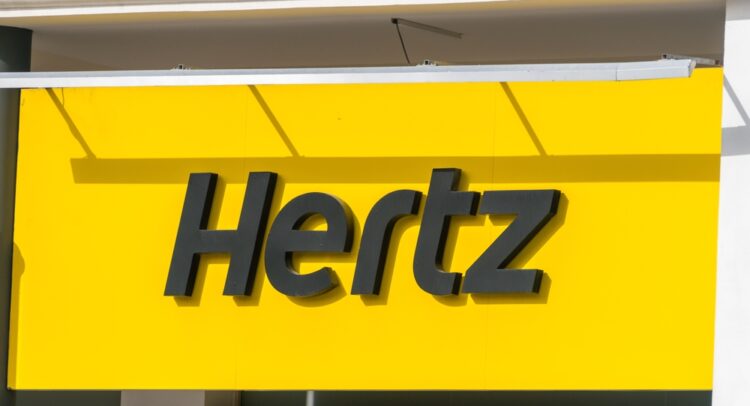A class action lawsuit was filed against Hertz Global Holdings, Inc. (NASDAQ:HTZ) on May 31, 2024. The plaintiffs (shareholders) alleged that they bought HTZ stock at artificially inflated prices between April 27, 2023, and April 24, 2024 (Class Period) and are now seeking compensation for their financial losses. Investors who bought Hertz Global stock during that period can click here to learn about joining the lawsuit.
Stay Ahead of the Market:
- Discover outperforming stocks and invest smarter with Top Smart Score Stocks
- Filter, analyze, and streamline your search for investment opportunities using Tipranks' Stock Screener
Hertz Global Holdings operates a vehicle rental business through its subsidiary, The Hertz Corporation. Hertz runs its business under various brands, namely Hertz, Dollar, and Thrifty, across North America, Europe, the Caribbean, Latin America, Africa, the Middle East, Asia, Australia, and New Zealand. The company claims to be one of the largest global vehicle rental companies, offering both internal combustion engine (ICE) vehicles and electric vehicles (EVs).
Hertz’s Misleading Claims
The plaintiffs maintain that Hertz and two of its current and/or former senior officers (individual defendants) deceived investors by repeatedly making false and misleading public statements about the company’s business practices and prospects during the Class Period.
As per the lawsuit, the then CEO (individual defendant) noted that the company was making higher investments in technology and electrification to improve operations, expand ridesharing, and revitalize the brand to enhance shareholder returns.
Moreover, in a quarterly report, the company noted that the vehicle rental business was seasonal. Accordingly, Hertz increased the vehicle fleet and staff during high-demand periods and decreased them during low-demand periods.
Furthermore, in a press release dated May 11, 2023, Hertz stated that it was adding 6,000 rental EVs to its fleet in Orlando. As part of its agreement with the City of Orlando, this step was taken to increase the fleet for leisure, business customers, and rideshare drivers.
Here’s How the Truth Was Revealed
The lawsuit accuses the Defendants of omitting truthful information about the financial impact of vehicle depreciation, and demand for EV rentals, from SEC filings and related material. According to the lawsuit, the company’s claims about EV demand were central to the case. Despite reporting increased EV demand during the Class Period, Hertz acknowledged in its Q4FY23 results that it faced ongoing challenges from its EV fleet and other costs during the quarter.
The information became clear in a series of events that occurred between January 11, 2024, and April 25, 2024. Importantly, on April 25, Hertz released weaker-than-expected earnings per share (EPS) for the first quarter of Fiscal 2024. The company reported an adjusted loss of $1.28 per share, significantly wider than the consensus loss of $0.43 per share. Also, the figure compared unfavorably to the prior-year quarter’s adjusted profit per share of $0.39.
The company noted that the adjusted corporate EBITDA (earnings before interest tax depreciation and amortization) turned negative owing to a $588 million ($339 per unit) increase in vehicle depreciation charges. The prime reason for the elevated depreciation costs was cited as “deterioration in estimated forward residual values and disposition losses on ICE vehicles.” Moreover, out of the $339 per unit increase, $119 was associated with the EVs held for sale.
Notably, due to the above factors, HTZ shares have lost over 67% so far in 2024, causing massive losses to shareholders’ returns.










